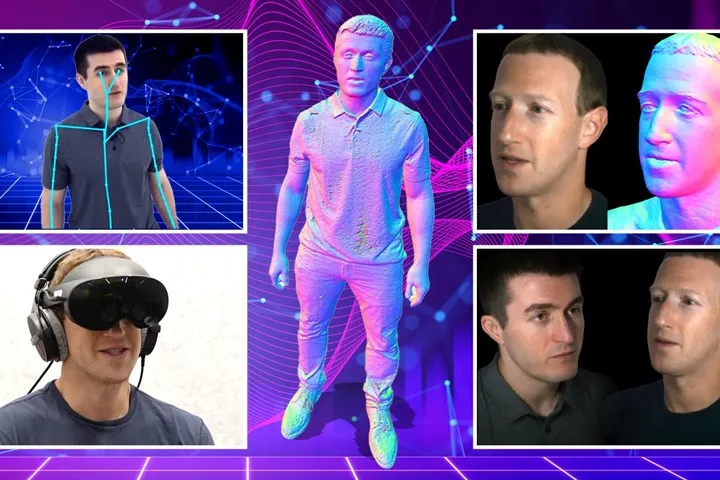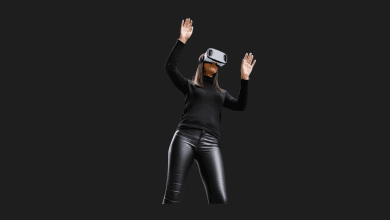Groundbreaking Photorealistic Avatars: First Metaverse Meeting

In an interview with Lex Fridman, Meta’s CEO, Mark Zuckerberg, revealed innovative photorealistic avatars for the Metaverse.
Meta, the parent company behind social networks such as Instagram, Facebook, and WhatsApp, is steadily advancing its vision for a virtual world. Initially, when Zuckerberg introduced the concept of the Metaverse, it was fairly basic.
The virtual avatars were elementary and lacked sophistication, rendering the VR experiences somewhat lackluster.
Despite encountering significant financial losses in this endeavor, Zuckerberg is unwavering. The tech mogul is set to transform the reputation of the Metaverse with the launch of new technology that enables communication through photorealistic avatars.
The future of communication could be photorealistic avatars

During a conversation with Lex Fridman, Facebook’s founder, Mark Zuckerberg, showcased the technology; here, Zuckerberg and Fridman were seen wearing the Meta Quest Pro headset, communicating through photorealistic avatars from different cities. So, what’s happening here? Zuckerberg explained that he and Fridman underwent a computer scan, which captures all of an individual’s facial expressions, muscle movements, aesthetics, and more to create a custom codec.
This scan is then integrated into the virtual world, and when the user dons the headset, this virtual avatar comes to life. Zuckerberg noted that, for now, the photorealistic quality applies from the shoulders up, but Meta is working on extending it to include the legs. Horizon Worlds, Meta’s virtual world, has faced criticism for avatars that often resemble cartoon characters. It appears that Zuckerberg has addressed these critiques and is taking a significant step towards photorealistic avatars.
As for the application of this technology, Zuckerberg mentioned that it allows individuals to communicate remotely in a very human-like manner. Business meetings, therapy sessions, interviews, and other forms of communication can be conducted remotely using special codecs. Fridman described the experience as “incredible,” noting how it felt like Zuckerberg was sitting across from her, despite not being physically present. The Meta CEO also mentioned that corporations could adopt this technology.
Currently, these photorealistic avatars are not accessible to general users. However, Zuckerberg envisions a future where people can scan themselves with their smartphones to create an avatar. Users could then engage in various communication-centric activities, potentially including live events such as stand-up comedy, parkour events, or other gatherings. Achieving this level of photorealism faces several challenges, from the technical feasibility of facial scanning with smartphones to ethical considerations regarding privacy.











